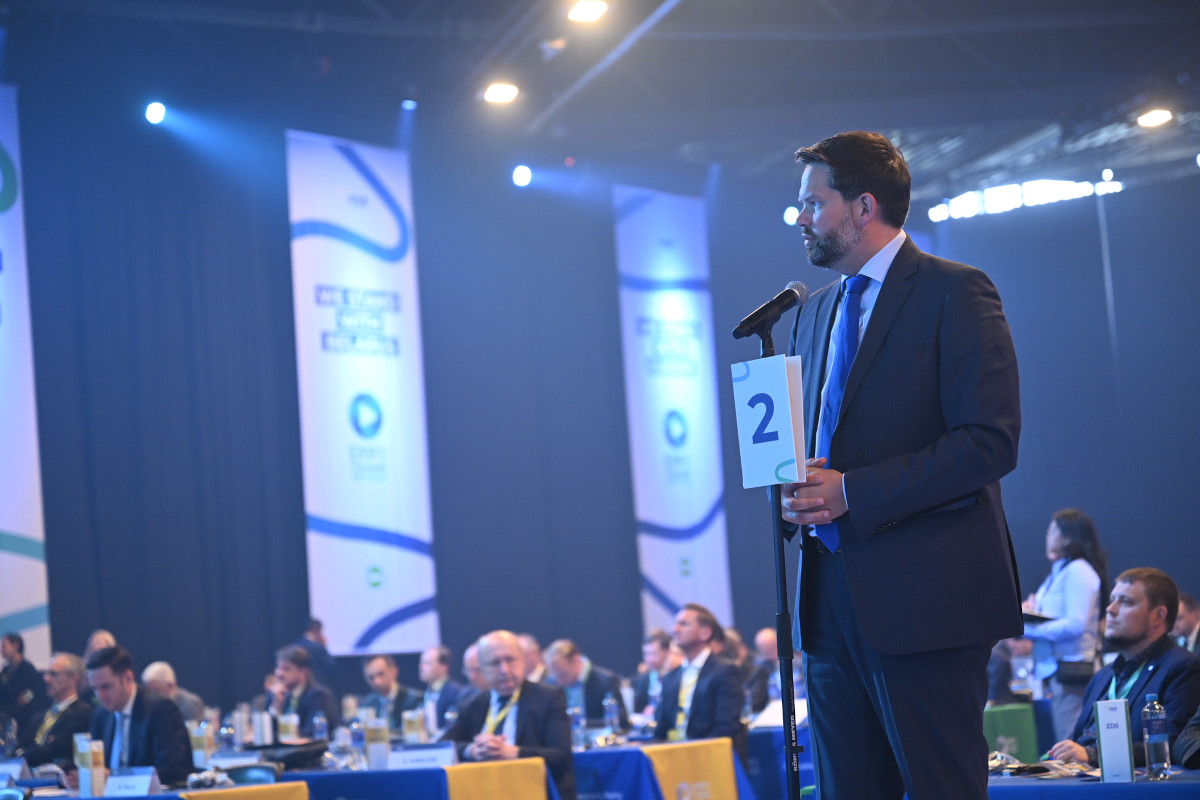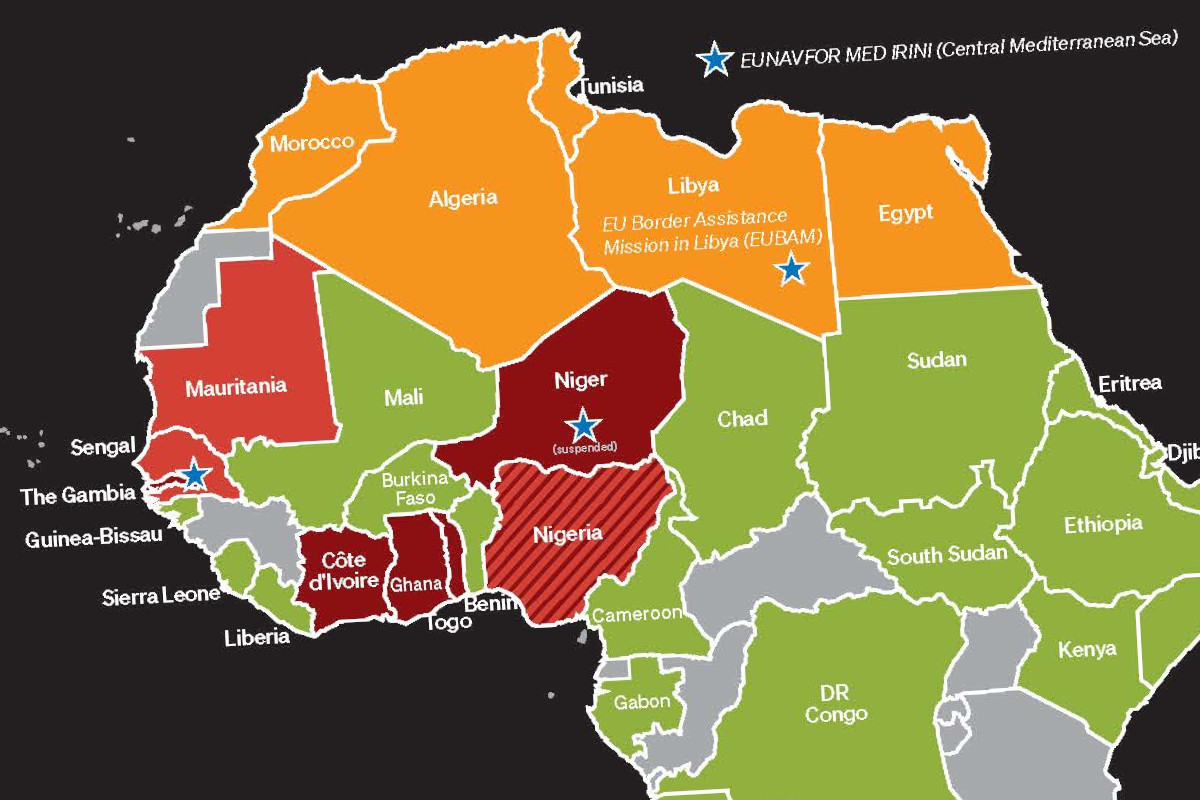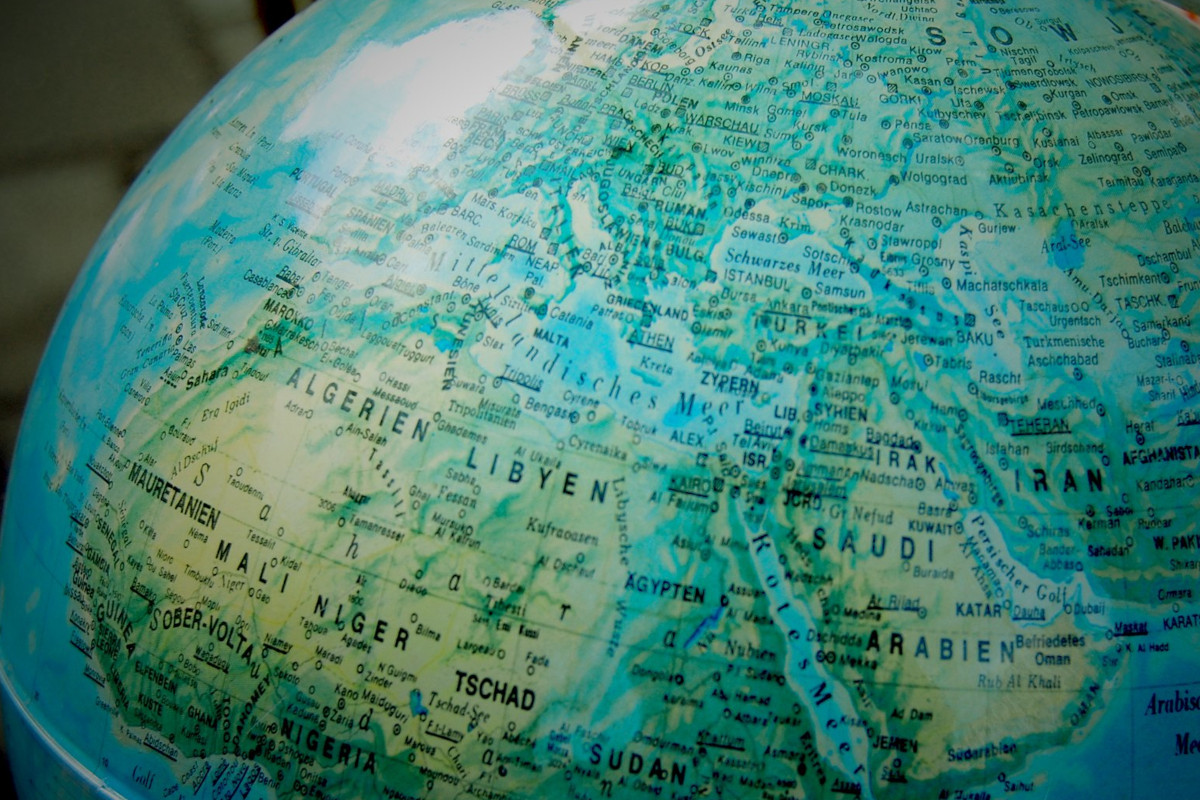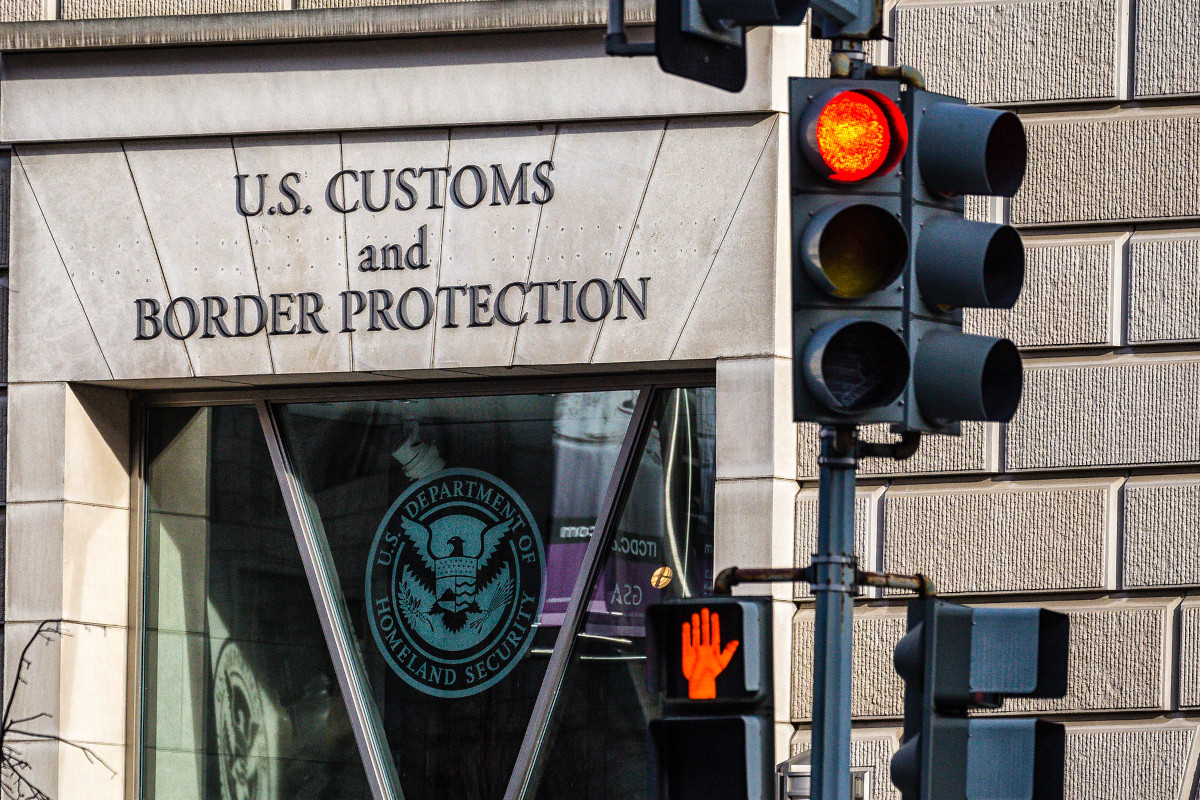European Parliament: Development committee report pushes to use aid as migration leverage
Topic
Country/Region
05 November 2025
The European Parliament’s Committee on Development (DEVE) is set to debate a report today that supports using development aid to encourage migration control cooperation by non-EU states.
Support our work: become a Friend of Statewatch from as little as £1/€1 per month.

Lukas Mandl at the European People's Party Congress in Rotterdam in 2022. Image: European People's Party, CC BY 2.0
This story is published as part of our monthly bulletin on border externalisation, Outsourcing Borders
The draft report, 'Reinforcing development cooperation to address irregular population movements and their root causes in partner countries' (pdf), will be presented by Lukas Mandl, an Austrian MEP.
Framed as a bid to tackle the “root causes” of migration, the report lays out recommendations including the systematic integration of “migratory considerations” into development policies and programmes.
It also calls for “tailor-made” migration approaches for individual countries, and the inclusion of “migration-related conditionality” in development funding, ensuring that aid allocations reflect partner countries’ “cooperation on return and readmission”.
This reflects language that has been employed by the EU for some years now.
Further proposed measures call for increased financial and political commitment to migration control projects along key routes and expanded media and outreach campaigns in countries of origin and transit to dissuade movement.
“This is yet another step towards transforming EU aid into a bargaining chip for border control,” said Chris Jones, Executive Director of Statewatch.
“Development cooperation is supposed to be geared towards reducing inequality, realising people's rights and improving their lives, not punishing countries for refusing to act as Europe’s gatekeepers.”
EU development aid has become increasingly conditional on migration cooperation.
Proposals for the EU’s 2028-34 budgets accelerate the trend. The proposed ‘Global Europe’ fund contains a clause that will make it possible to halt all financial support, bar humanitarian aid, to non-EU states that do not cooperate with deportations from the EU.
Mandl is a national member of the Austrian People's Party (Österreichische Volkspartei), and a member of the European People's Party in the European Parliament.
Our work is only possible with your support.
Become a Friend of Statewatch from as little as £1/€1 per month.
Further reading
Bulletin 11
<p><em><span>“History has failed us, but no matter.”</span></em></p> <p style="padding-left: 40px;">- Min Jin Lee, Pachinko</p> <p>This bulletin is also available in <a rel="noopener" href="/media/5168/outsourcing-borders-11.pdf" target="_blank" title="Bulletin 11">PDF format</a>.</p>

EU budget proposals: more external migration control, less democratic scrutiny
In mid-July, the European Commission published its proposal for the EU’s next long-term budget, for the period from 2028 to 2034. The Commission wants €200 billion for “external action” – a 75% increase from the current budget. Within this, external migration control remains a high priority. The Commission wants to penalise states that don’t comply with EU migration policies, whilst undermining official development aid standards and limiting democratic oversight.

New report examines Frontex's growing role in West Africa
A new report provides a critical examination of the evolving role of Frontex, the EU Border and Coast Guard Agency, in West Africa.
Spotted an error? If you've spotted a problem with this page, just click once to let us know.

